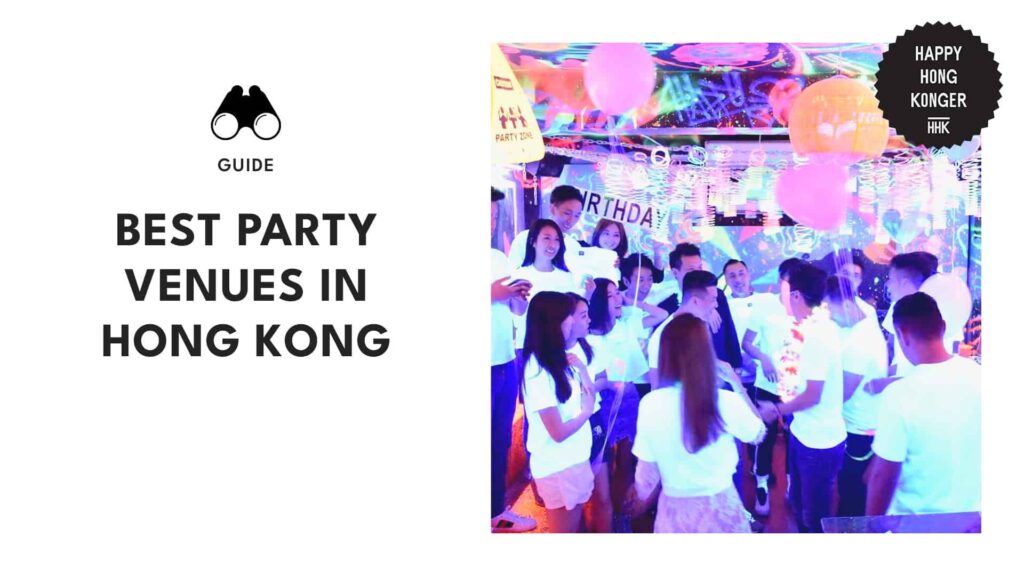Categories > Guides and Tips
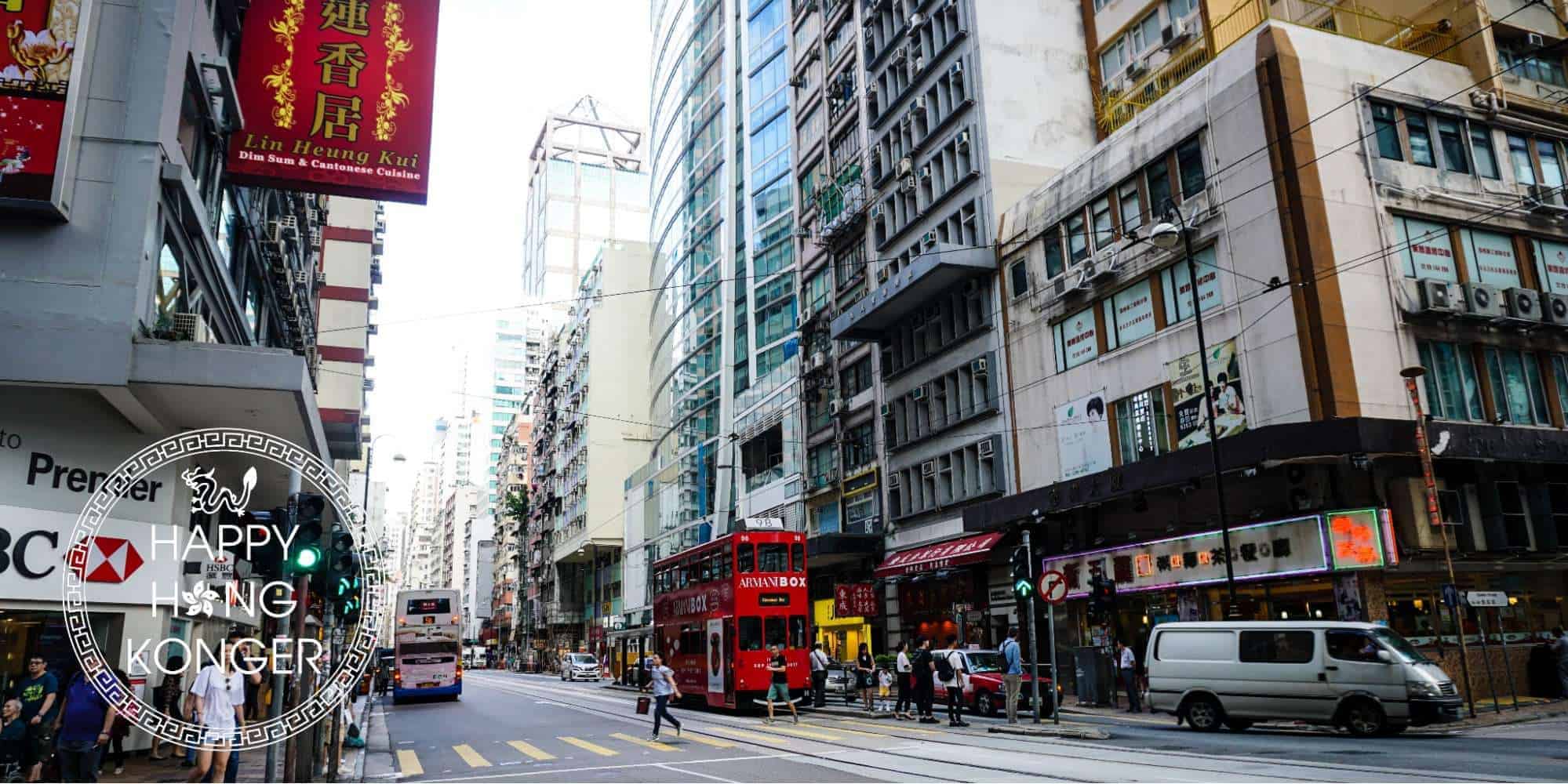
The Pros and Cons of Living in Hong Kong
- What are the advantages of living in Hong Kong?
- Work Opportunities and Earning Potential
- Efficient Public Transportation
- Minimal Crime
- High Quality of Education
- Closeness to Natural Environments
- Flourishing Expatriate Community
- What are the disadvantages of living in Hong Kong?
- High Costs of Living
- Worsening Housing Crisis
- Dirty Air and Pollution
- Unhealthy Work Culture
- Strict Pandemic Rules
- Political Tensions
A lot of people ask us, “What are the pros and cons of living in Hong Kong?”
The pros of living in Hong Kong include a lot of career opportunities, a strong transportation system, and a robust educational system. Meanwhile, the cons of living in Hong Kong include high rent and cost of living, high population density, and significant political tension with the mainland.
This is just the tip of the iceberg, of course. To learn more, let’s break this down, discussing advantages and disadvantages individually.
What are the advantages of living in Hong Kong?
The main advantages of living in Hong Kong are numerous work opportunities, access to an amazing transport system, minimal crime, high quality of education, and a welcoming attitude towards foreigners.
1. Work Opportunities and Earning Potential

It is unsurprising that Hong Kong has countless work opportunities for both locals and foreigners alike, as the region is an international financial trading hub.
According to an article from Harvard Business Review, more than 9,000 foreign firms operate in Hong Kong, with 1,300 coming from the United States.
Not only multinational companies flourish in Hong Kong, but also small startups, especially those in the fields of finance, technology, business, and engineering. As such, professionals with interests and experience in these fields are in high demand and compensated well.
For example, in recent data from the University Grants Committee, graduates in the following fields received massive starting pay increases in 2022.
| Field | Annual Income | Annual Income (USD) | Increase vs previous year |
| Average salary of fresh graduates | HKD 281,000 | USD 35,985 | 6% |
| Engineering and Technology | HKD 229,000 | USD 29,326 | ~25% |
| Business and Management | HKD 256,000 | USD 32,784 | 9% |
| Postgraduates | No data | No data | 5% |
Hong Kong is also 14th when it comes to highest average income after tax worldwide, according to data presented by Numbeo. The city’s wages are ahead of other Asian countries, such as Japan and Taiwan.
As such, you may find Hong Kong a place worth working in and living in.
2. Efficient Public Transportation
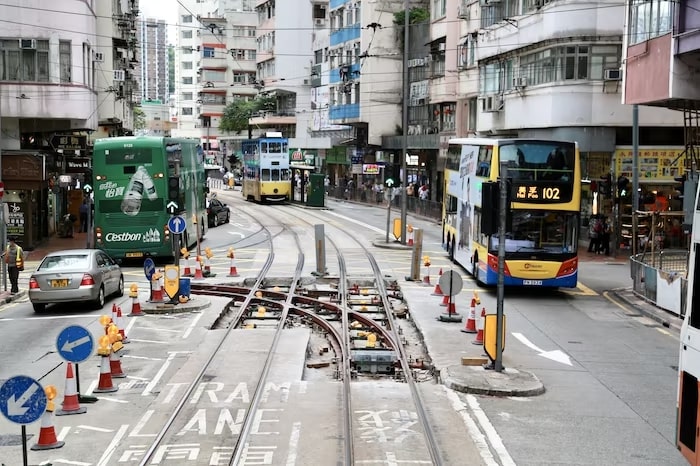
For locals travelling abroad and foreigners visiting Hong Kong, one of the biggest surprises is always related to the city’s public transportation system.
If you did not know, not everyone can own a car in Hong Kong because of the high upkeep costs and taxes.
Nevertheless, you can still travel and go to work without worrying about being late because Hong Kong’s transit system is the best in the world, according to research.
In a study conducted by the Oliver Wyman Forum and the University of California Berkeley’s Institute of Transportation Studies, they found that Hong Kong has the most exceptional public transport system in the world.
According to them, Hong Kong has an advantage over every other transit system when it comes to low fares, financial self-sustenance, minimal crowding, speedy commutes, and rare delays and disruptions.
This encompasses not only the special administrative region’s trains and buses but also its trams and other vehicles, too.
3. Minimal Crime
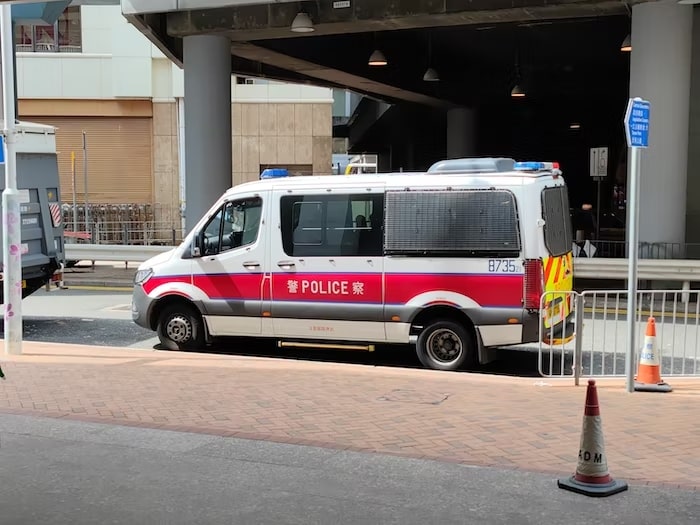
Hong Kong is one of the safest cities in the world, ranking eighth overall on the list released by the Economist Intelligence Unit (EIU).
More specifically, Hong Kong ranks fourth in urban safety, third in health security, first in infrastructure, 21st in personal security, and 27th in environmental security, according to the same data from the EIU.
Also, according to the data released by Macro Trends, Hong Kong’s crime rate in 2020 was only 0.29, which was even a 9.05% decline from the year prior.
This is low compared to the overall average crime rate in the East Asia-Pacific region, which is 1.40% according to the company.
In 2022, crimes went up 1.8% but these crimes were mostly from deception cases, which rose 41.7%. These crimes include employment fraud, online shopping fraud, and other similar activities.
Violent crimes, however, decreased by 12.2%. According to the Hong Kong Police Force, the number of cases of major crimes such as robbery, assault, and theft hit a new record low since 1997.
You may attribute this low rate of violent crime to Hong Kong’s stringent gun control laws, where nobody may use firearms except on authorised sites. In the special administrative region, only the Hong Kong Police carry guns on their person.
With all of these in mind, you can expect to live safely and explore Hong Kong even at night without worries.
4. High Quality of Education

Another big perk you can get by living in Hong Kong is getting access to the region’s universities.
Universities in Hong Kong consistently rank as among the best in Asia and in the world. Through a high level of quality control, especially in tertiary education, Hong Kong’s schools are some of the best places to study for locals and foreigners alike.
According to Times Higher Education, four universities in Hong Kong placed within the top 20 schools in Asia, with more included in the top 100. The universities and their rankings are as follows:
| University | Ranking in Asia (2022) | Worldwide Ranking (2022) |
| University of Hong Kong | 4th | 30th |
| Chinese University of Hong Kong | 7th | 49th |
| The Hong Kong University of Science and Technology | 9th | 66th |
| Hong Kong Polytechnic University | 15th | 91st |
| City University of Hong Kong | 24th | 151st |
| Hong Kong Baptist University | 91st | 401 – 500 |
Expatriates can also participate in Hong Kong’s education system, as the universities welcome international students and often use English as the primary language of instruction.
Also, did we mention that primary to junior secondary studies are free in public schools?
5. Closeness to Natural Environments

Hong Kong is undoubtedly popular primarily because of its harbours, cityscapes, and urban wonders. However, due to the region’s unique geography and landscape, residents of the region can easily travel to natural wonders to escape the busy and bustling cities.
Unknown to many, 40% of the special administrative region’s territory are protected nature reserves, where tourists can visit stunning rock formations, warm beaches, lovely mountains, and diverse protected wildlife.
As such, locals’ and expatriates’ lists of things to do in Hong Kong often include visiting cultural and spiritual venues and exploring nature reserves. Some Taoist temples and Buddhist gardens can also be found at the heart of the cities, making them highly accessible.
These cultural centres and natural wonders are also often a bus or train ride away, meaning you can go hiking, swimming, surfing, and exploring within just a few minutes of commute.
6. Flourishing Expatriate Community
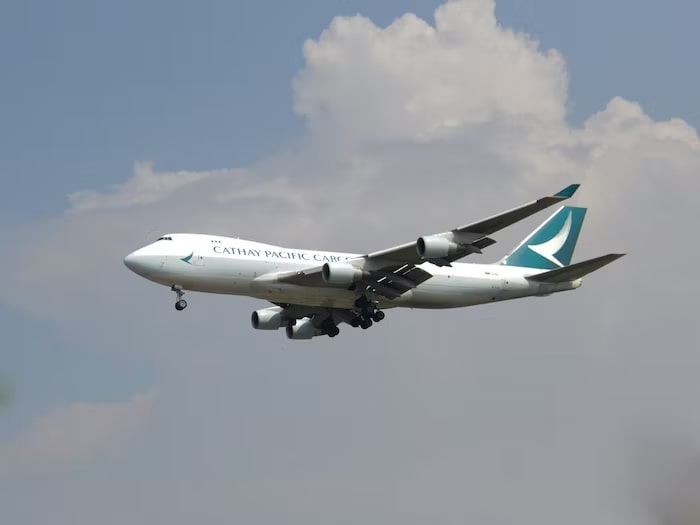
Hong Kong’s status as an international financial hub helps it attract people from all over the globe. As such, it is unsurprising that many expatriates live in Hong Kong, especially those pursuing their careers away from their homeland.
Now, a flourishing expatriate community is primarily a huge advantage for foreigners, as they could find people from the same country that they could immediately connect with once they move.
Many foreigners and their families live in the southern part of Hong Kong Island or in the Kowloon Peninsula since these places have access to good schools and space.
Hong Kongers are generally very welcoming of foreigners too, which is a plus.
What are the disadvantages of living in Hong Kong?
The main drawbacks of living in Hong Kong are skyrocketing rent and cost of living, high population density and pollution, stringent pandemic rules, political tensions, and unhealthy work culture.
1. High Costs of Living

Despite many companies in the region paying above-average salaries with respect to other Asian countries, Hong Kong remains to be one of the most expensive cities to live in.
According to a report released by the Economist Intelligence Unit, Hong Kong ties with Los Angeles as the fourth most expensive city to live in in 2022.
The EIU’s methodology involves checking how much prices in these cities have fluctuated over the past year. However, if you factor in everyday expenses such as utilities and rent, Hong Kong tops the list as the world’s priciest city.
According to the company ECA International, Hong Kong claims the unwanted title of the world’s most expensive city to live in and has retained the top spot for three straight years,
Regardless of research methodology and factors considered, one thing remains clear: Hong Kong is difficult to live in if you are short on funds. This is due to the price of commodities, even if transportation, telecommunications, and healthcare cost significantly less.
2. Worsening Housing Crisis
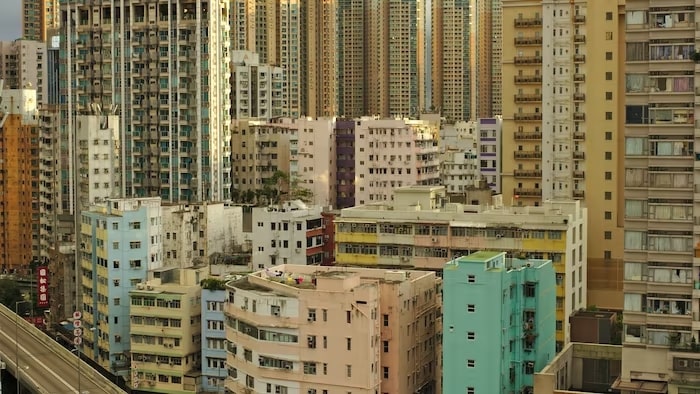
If you look at photos of Hong Kong’s streets, you will see that the region is very population-dense.
As of recent data, Hong Kong has a population of 7,413,100. Due to the region’s mountainous terrain surrounded by seas, these masses are forced to live in overpopulated areas and struggle to obtain housing.
Some property developers even resorted to making smaller and smaller apartments just to accommodate as many people as they could.
This struggle to find housing contributes to Hong Kong’s housing crisis and further increases the rent prices, especially in population-dense areas such as the cities.
3. Dirty Air and Pollution
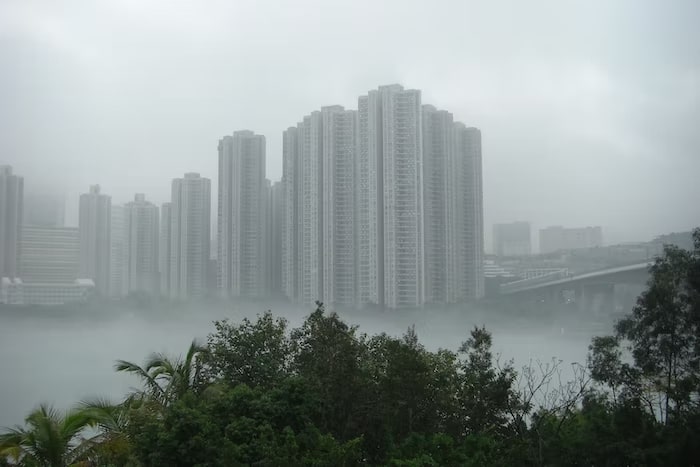
Hong Kong may not be on the list of the most polluted cities in the world, but the city’s air is still a cause for concern.
According to a report by the South China Morning Post, the Environmental Protection Department recently found that air pollution in some parts of Hong Kong reached “serious,” the highest level of health risk.
However, Hong Kong and its government is continuously working to control pollution levels, with the air quality improving over the past decade. Still, the region still falls short of the World Health Organization’s standards.
According to IQAir, Hong Kong PM2.5 concentration – the density of harmful fine particles and droplets in the air – is 7.5 times the WHO’s annual air quality guideline value.
As per the Hong Kong Government, the air pollution in Hong Kong is caused by vehicles and power plants, leading to high amounts of smog and other local-level pollution.
As such, living in Hong Kong may not be recommendable for the elderly and for those with sensitivities and health risks.
4. Unhealthy Work Culture
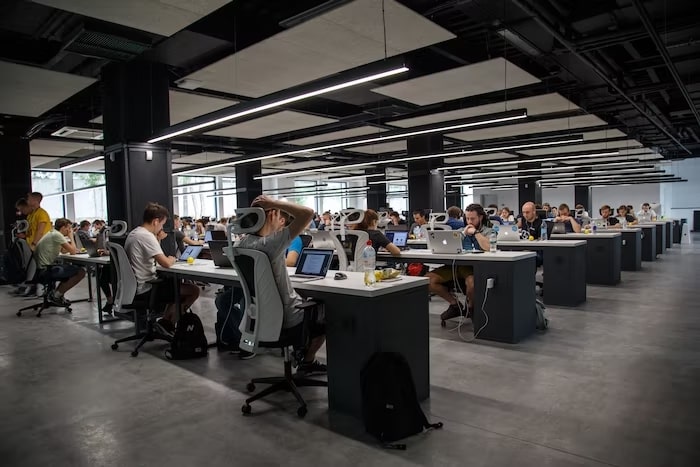
Although Hong Kong is well-known for its numerous work opportunities, high demand for professionals, and above-average starting salary, the region is also notorious for its incredibly taxing work culture.
Many surveys found Hong Kong’s companies to be enforcing over 40 hours of work each week, with 46% of workers putting in more than 50 hours weekly. With these findings, the AIA ranked Hong Kong as the region with the longest work hours in the Asia-Pacific.
According to the AIA, full-time employees put in an average of 45 hours a week, putting employees at risk of having physical and mental health issues due to stress and exhaustion.
5. Strict Pandemic Rules

Hong Kong has a reputation for one of the strongest pandemic responses, following mainland China’s zero-Covid policy that shut down travel and forced many people to stay home.
Recently, however, the Hong Kong Government has been easing up on restrictions but still has certain limits in place that hinder people’s movements. These restrictions include limiting the size of small gatherings to 12-person groups.
Hong Kong also put in place curfews and other rules for businesses to follow. Getting caught in violation of these rules and regulations could subject you to heavy fines or even lead to imprisonment.
Hong Kong also requires its citizens and visitors to use the LeaveHomeSafe app, which many people fear could be used for mass surveillance and violations of data privacy.
Political Tensions
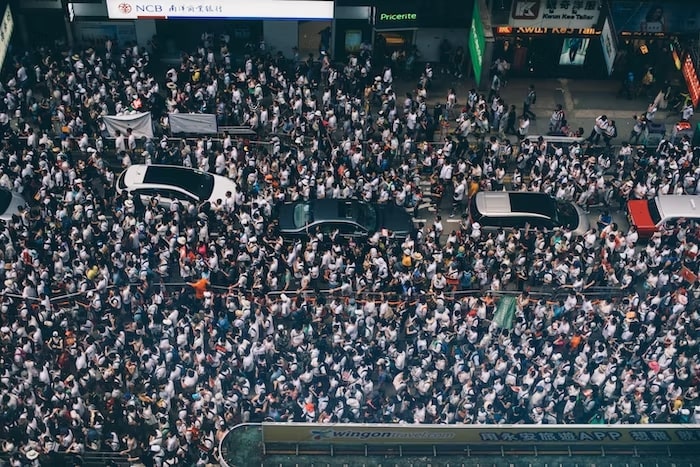
It is no secret that Hong Kong has been the centre of political unrest, especially since the 2019 protests and subsequent events.
Ever since then, Hong Kong has been subject to certain laws that many disagree with, including censorship of foreign movies and the media, disqualifying opposition from the government, and the imprisonment of activists and other pro-democracy demonstrators.
With this in mind, many people are turning away from Hong Kong, including expatriates and residents looking to escape the tensions between Hong Kong and Beijing.

